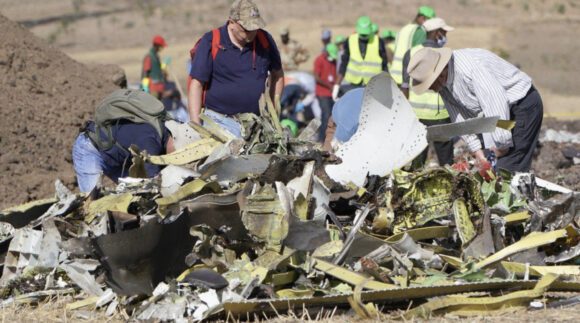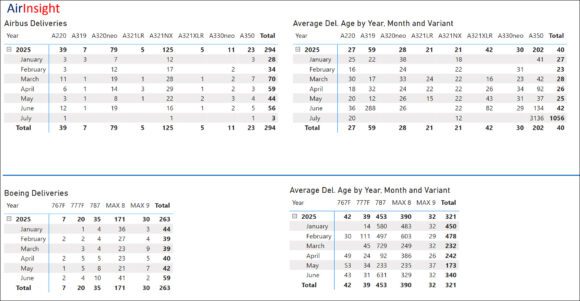Recently we posted a premium article on single aisle backlogs that elicited some debate. This is welcomed because the subject is important and views will vary.
The essence of our view is that we find the OEM target of a rate of 60 single aisles each per month difficult to comprehend. The view is primarily based on oil prices. The next chart illustrates the influence oil prices have played on single aisle fleet decisions. The oil price spikes clearly impacted decisions. It is during this period that we saw the arrival of the CSeries (initially pitched as a fuel saver) and then came the fuel saving A320neo and 737 MAX. High oil made airlines and lessors jump at fuel saving aircraft.
 Oil prices have fallen steadily since 2012 as have orders. Some are pointing to the rise in oil prices now as a reason to be bullish on the backlog remaining strong or even growing again. We disagree and here’s why.
Oil prices have fallen steadily since 2012 as have orders. Some are pointing to the rise in oil prices now as a reason to be bullish on the backlog remaining strong or even growing again. We disagree and here’s why.
Our view is that oil prices are likely to remain weak for some time. Lower oil prices mean lower Jet A prices. This means “older” aircraft, whose economics were upside down with oil over $100/BBL are profitable now. Even factoring in MRO costs, these aircraft are written down and make money for airlines. Proof is the performance of Delta Air Lines, the biggest proponent of keeping an older fleet and benefiting from low oil prices.
How come we are confident oil prices won’t spike again? Two reasons: OPEC is an oligopoly and US-based fracking.
Oligopolies fail because of cheating. OPEC may set new production levels to cut back and push prices up. But self interest trumps such agreements. For example, does anyone believe Venezuela will stick to its quota? How about Nigeria or Angola? They have cheated before when their economies were in better shape than they are now. Iran wants to get back to its old production levels, as does Libya and Iraq. Thinking that OPEC quotas will hold is naive. These producers should ensure we are swimming in oil. The previous oil swing producer was Saudi Arabia. It is naive to think that nation won’t cheat either. Oil producing nations are not just economically unstable, they are also politically unstable (even Russia). They must cheat on OPEC quotas to raise money to keep their populations from unrest that could topple or threaten leadership. So we are comfortable betting on low oil for some time.
Then there is the new swing oil producer, the United States. Even if OPEC gets oil prices to rise from the lows of last year, there is a ceiling they cannot exceed. What is that ceiling? It’s a debatable number. As oil prices have risen lately, so have the number of fracking rigs. And it gets worse for OPEC – fracking is an intensely competitive business. The fracking industry is becoming ever more efficient. This means that as oil prices approach $50/BBL the fracking industry rises again. And if the prices drops to $45, many fracking outfits can handle this. Indeed some say the fracking industry makes money at $40/BBL. With each fracking efficiency improvement that number goes down. The oil price ceiling is anywhere from $40 to $55/BBL, as a guess.
So, if you are running an airline fleet what do you do? Are you still frantic to acquire fuel efficient, but expensive, new aircraft? Southwest delayed 737 deliveries last year. So did United. Today Ukraine International Airlines also slowed its growth. We expect more airlines realize the rush for expensive new aircraft is no longer as warranted as it was two years ago.
Which is brings us back our proposition – we do not think a rate of 60 per month is warranted. Will Boeing still go for it? Most probably. But they almost have to, the 737 is the best selling product they have and they need positive cash-flow. The 787 and 777 are not selling fast enough. Ditto for the 747. Is this smart? Perhaps in the short term, but over the longer term, perhaps not.
We welcome more voices to this debate. And your comments.
Views: 4





Personally, I haven’t figured out where the oil pice is going. One of the thing that that you should also take in consideration is that in order to maintain the production an oil well, company have to keep investing in it every year. Other wise production of the well is declining years after years. For the las four year, the world wide investment in oil production was below the the minimum to maintain production an it is declining, this is something never seen before.
The low oil price is affecting all transportations sector, this mean the old trucks, cars, pick up ans SUV are kept on the road so less mew energy saving vehicles are being bought. At one point this should send oil consumption in a spike, not this year or in 2018 but when?.